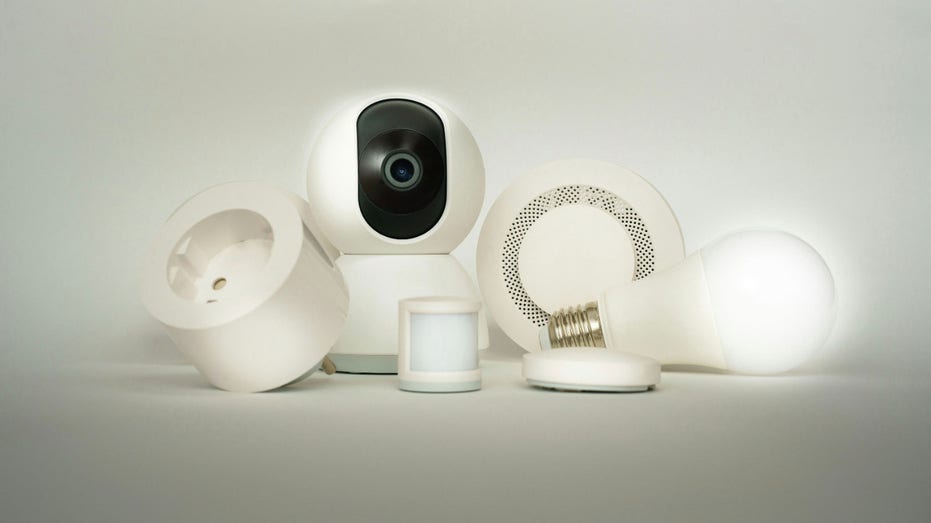Are Your Smart Home Cameras Watching You? Shocking Data Collection Unveiled

The Rise of Smart Home Cameras
Smart home cameras have become increasingly popular as essential tools for home security. They allow homeowners to monitor their properties remotely, providing peace of mind whether indoors or outdoors. However, as their usage grows, so do concerns about privacy and data security.
Privacy Risks Exposed
A recent study by Surfshark reveals alarming data collection practices associated with outdoor security camera apps. These applications have been identified as some of the top offenders when it comes to gathering user data. On average, they collect a staggering twelve data points, which often include sensitive information such as email addresses, phone numbers, payment details, and precise location data. This figure represents a 50% increase compared to other smart home devices.
Indoor security cameras are slightly less aggressive in their data collection, averaging nine data points. However, six of these are typically linked to personal identities, raising serious privacy concerns. Commonly accessed data includes user IDs, device IDs, and even audio recordings. While this information can enhance user experience, it also increases the risk of privacy violations.
-
Dangerous Chrome Extensions Disguised as Password Managers: What You Need to Know

-
Tax Scam Alert: Essential Strategies to Safeguard Your Tax Refund

-
Major AWS Outage Caused by Single Software Bug, Disrupting Millions Worldwide

-
Apple Reclaims Blood Oxygen Monitoring for US Apple Watch Users with Innovative Update

What Data Are They Collecting?
The type of data collected by these camera apps is particularly concerning. Many applications gather personal information, including your name, email, phone number, and physical address. Notably, certain apps such as Arlo, Deep Sentinel, and D-Link collect information about your contacts, which can be accessed outside of the app. This level of data collection is unnecessary for the core functionalities of these cameras.
Top Data Collectors in the Market
Among the various applications on the market, Deep Sentinel and Lorex stand out for outdoor cameras, each collecting 18 out of a possible 32 data points. For indoor cameras, Nest Labs leads the way with 17 data points, followed closely by Ring and Arlo, which each gather 15.
The lack of regulations and standards governing smart home devices exacerbates privacy risks. Users may find themselves vulnerable to data breaches, cyberattacks, and even physical threats. Some apps may track users for targeted advertisements or share data with third-party companies without explicit consent.
Protecting Your Privacy: Essential Tips
Given the potential risks associated with smart home cameras, users can take several proactive steps to safeguard their privacy:
1. **Limit Data Sharing**: Choose smart home camera apps that offer customizable data sharing settings. Disable unnecessary features like location tracking or audio recording.
2. **Regularly Review Privacy Settings**: Stay updated on your app’s privacy settings, especially after software updates. Adjust settings to disable non-essential data sharing.
3. **Use Strong Passwords and Two-Factor Authentication (2FA)**: Protect your camera’s app and associated accounts with robust, unique passwords. Consider using a password manager for added security.
4. **Be Mindful of Camera Placement**: Position cameras carefully to avoid capturing sensitive data in private spaces, such as bedrooms or bathrooms.
5. **Consider Local Storage Options**: Opt for cameras that allow local storage of footage, keeping it off the cloud and reducing exposure to potential data breaches.
6. **Utilize a VPN**: Encrypt your internet connection with a VPN to secure data transmitted from your devices, making it harder for hackers to intercept your information.
7. **Stay Informed About Privacy Policies**: Regularly check how your devices collect, store, and share data. Be aware of any changes that could impact your privacy.
8. **Evaluate Home Security Systems Carefully**: While seeking comprehensive security solutions, be mindful of the data these systems collect and how it will be used.
Final Thoughts
The rapid advancement of IoT technology has transformed our daily lives, but it comes with risks that cannot be ignored. Companies may prioritize profit over user safety, leading to devices that collect excessive data without transparency. It’s essential for users to understand the implications of their smart home devices and take steps to protect their personal information.
Are you comfortable with the data collection practices of your smart home devices? Share your thoughts and experiences with us.
For more tech insights and security tips, subscribe to my newsletter, and stay informed about the latest developments in technology and privacy.
